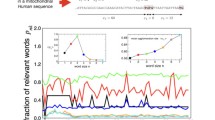Abstract
This work presents a strategy to answer questions about locations based on a character alignment algorithm that ranks Google snippets according to their similarity with the query. Answer candidates are extracted by using a Name-Entity Recognizer and then ranked according to their position in this new rank. Results concerning questions on location of monuments and cities around the world are discussed.
Preview
Unable to display preview. Download preview PDF.
Similar content being viewed by others
References
Lita, L., Carbonell, J.: Unsupervised Question Answering Data Acquisition From Local Corpora. In: Proceedings of the Thirteenth Conference on Information and Knowledge Management (CIKM 2004), Washington, DC, USA, November 8–13 (2004)
Savary, A., Jacquemin, C.: Reducing Information Variation in Text. ELSNET Summer School, pp. 145–181 (2000)
Henikoff, S., Henikoff, J.: Amino acid substitution matrices from protein blocks. Proceedings of the National Academy of Science USA 89(2), 10915–10919 (1992)
Dayhoff, M., Schwartz, R., Orcutt, B.: A model of evolutionary change in proteins. Atlas of Protein Sequence and Structure, 5(suppl. 3), Natonal Biomedical Research Foundation, Washington D.C., pp. 345–352 (1978)
Waterman, M.: Estimating statistical of sequence alignments. Philosophy Transactions of the Royal Society of London 344, 383–390 (1994)
Sasaki, Y.: Question Answering as Question-Biased Term Extraction: A New Approach toward Multilingual QA. In: Procs. of the 43rd Annual Meeting of the ACL, Ann Arbor, USA, pp. 215–222 (2005)
Chen, J., Ge, H., Wu, Y., Jiang, S.: Question Answering Combining Multiple Evidences. In: Proceedings of TREC (2004)
Needleman, N., Wunsch, J.: A general method applicable to the search for similarities in the amino acid sequence of two proteins. Journal of Molecular Biology 48, 443–453 (1970)
Greenwood, M.: Using Pertainyms to Improve Passage Retrieval for Questions Requesting Information About a Location. In: Information Retrieval for Question Answering: A SIGIR 2004 Workshop, Sheffield, UK (July 2004)
Fellbaum, C.: WordNet: An Electronic Lexical Database. MIT Press, Cambridge (1998)
Monz, C.: From Document Retrieval to Question Answering, Institute for Logic Language and Computation, IILC Dissertation Series DS-2003-4, University of Amsterdam (2003)
Wei, K.: Improving Answer Precision and Recall of List Questions, MSc thesis, School of Informatics, University of Edinburgh, UK (2005)
Author information
Authors and Affiliations
Editor information
Editors and Affiliations
Rights and permissions
Copyright information
© 2006 Springer-Verlag Berlin Heidelberg
About this paper
Cite this paper
Figueroa, A., Atkinson, J. (2006). Molecular Sequence Alignment for Extracting Answers for Where-Typed Questions from Google Snippets. In: Gabrys, B., Howlett, R.J., Jain, L.C. (eds) Knowledge-Based Intelligent Information and Engineering Systems. KES 2006. Lecture Notes in Computer Science(), vol 4251. Springer, Berlin, Heidelberg. https://doi.org/10.1007/11892960_143
Download citation
DOI: https://doi.org/10.1007/11892960_143
Publisher Name: Springer, Berlin, Heidelberg
Print ISBN: 978-3-540-46535-5
Online ISBN: 978-3-540-46536-2
eBook Packages: Computer ScienceComputer Science (R0)




